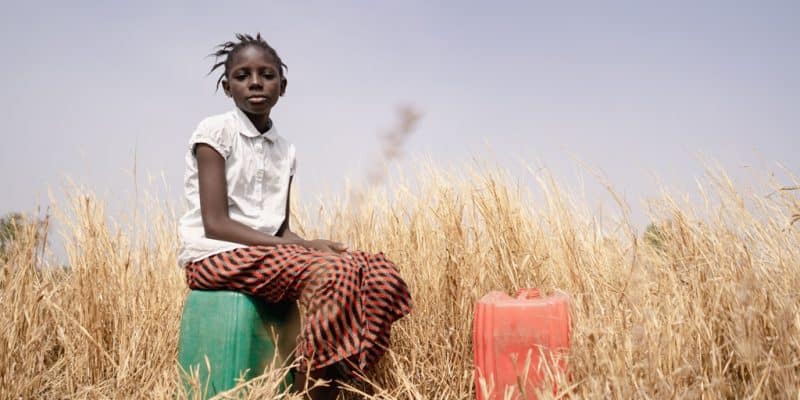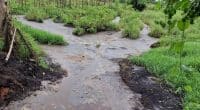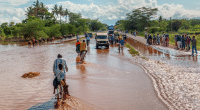In a recent report, the United Nations Children's Fund (Unicef) revealed that one child in three is exposed to the effects of climate change, such as water stress. The international organisation intends to use this document to urge world leaders and the international community, who will be attending the 28th United Nations Conference of the Parties (COP28) on climate change in Dubai on 30 November, to take action to protect the lives, health and well-being of these children, especially in the most vulnerable areas.
The United Nations Children’s Fund (UNICEF) report entitled “Growing Up with Climate Change: A Complement to the Children’s Climate Risk Index” was published on 13 November 2023, 17 days before the start of the 28th United Nations Conference of the Parties (COP28) on climate change, to be held in Dubai in the United Arab Emirates (UAE) from 30 November to 12 December 2023.
According to the document, one in three children, or 739 million people, are suffering the effects of climate change, as is water stress worldwide. “The greatest number of children at risk are in the Middle East, North Africa and South Asia, regions characterised by limited water resources, high levels of seasonal and inter-annual variability, declining groundwater tables and risk of drought”, says Unicef.
This vulnerability to water shortages can quickly have an impact on health, with attention deficit disorders, immediate memory problems and fatigue being the main consequences of a lack of hydration. Thinking they can avoid this tragic outcome, they generally turn to unsafe water sources, but are soon caught out by water-borne diseases such as cholera, typhoid fever and diarrhoea, which are often fatal in children under 5.
Read Also – ZIMBABWE: How drinking water shortages are accelerating the spread of cholera
From 436 million children threatened by water stress in 2022, UNICEF fears that 35 million more will be exposed by 2050. In these circumstances, investing in adequate safe water supply and sanitation services is an essential first line of defence to protect children. Unicef plans to remind world leaders and the international community present at COP28 of this.
The Loss and Damage Fund must meet children’s needs
As well as the risks associated with water shortages, children are also vulnerable to air pollution from greenhouse gases (GHGs), extreme heat, flooding, food insecurity, etc. “Their bodies and minds are at risk from climate change,” says UNICEF. “Their bodies and minds are uniquely vulnerable,” warns Catherine Russell, Executive Director of UNICEF.
In addition to developing resilience projects, Unicef has set out four measures in its report to ensure that children have a more liveable planet. Firstly, children must be included as full stakeholders in the decision to cover COP28, and an expert dialogue on children and climate change must be convened. It will also be necessary to integrate children and intergenerational equity into the Global Assessment and to take account of children and the need to put in place essential services that are resilient to climate change in the final decision on the global objective for adaptation.
In addition, the Loss and Damage Fund and its financing arrangements must be child-sensitive, and children’s rights must be embedded in the Fund’s governance and decision-making processes. “It is our collective responsibility to place children at the heart of immediate global climate action. It’s urgent”, says Catherine Russell.
Inès Magoum






